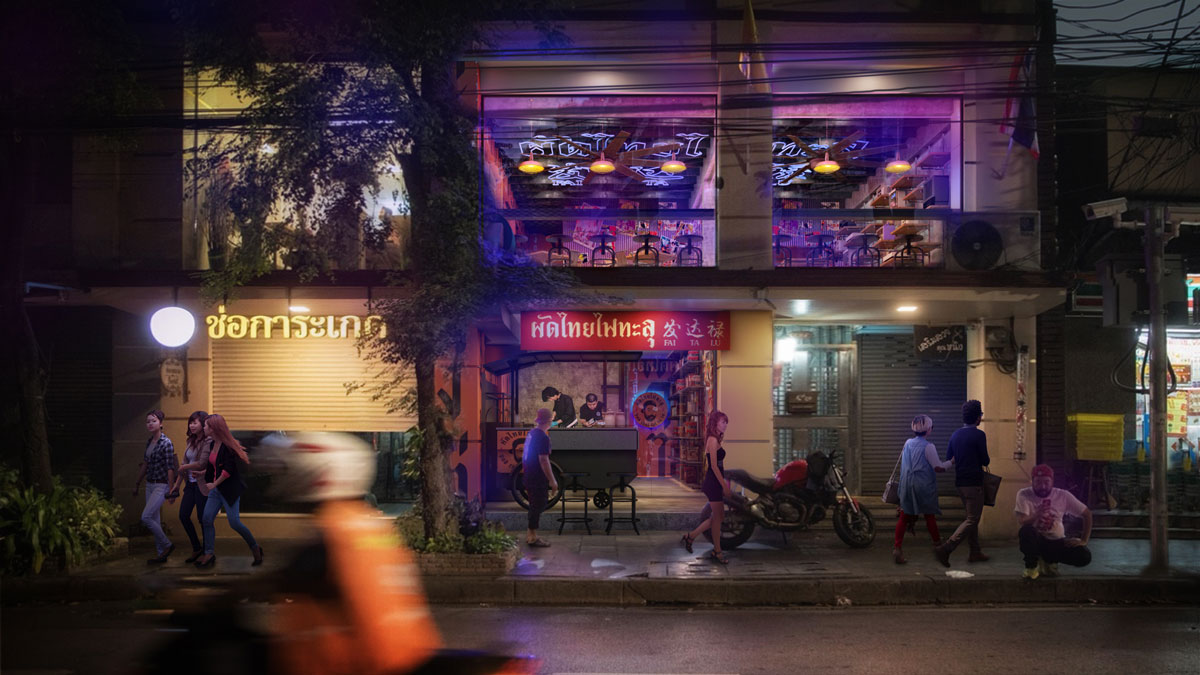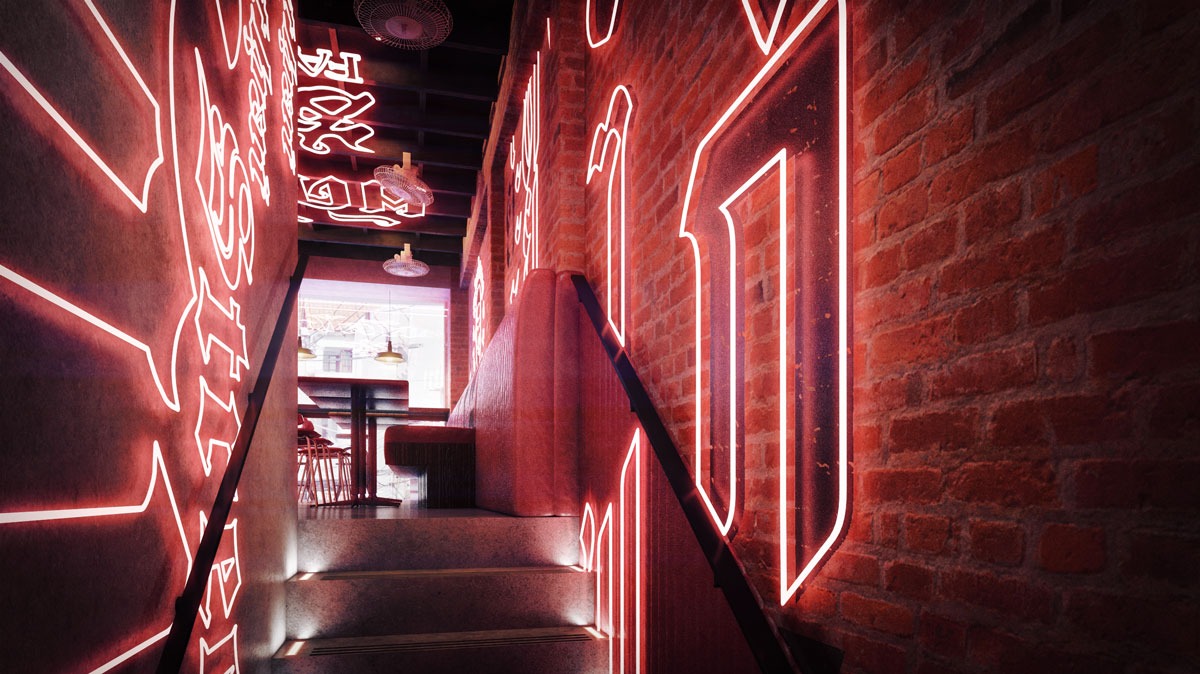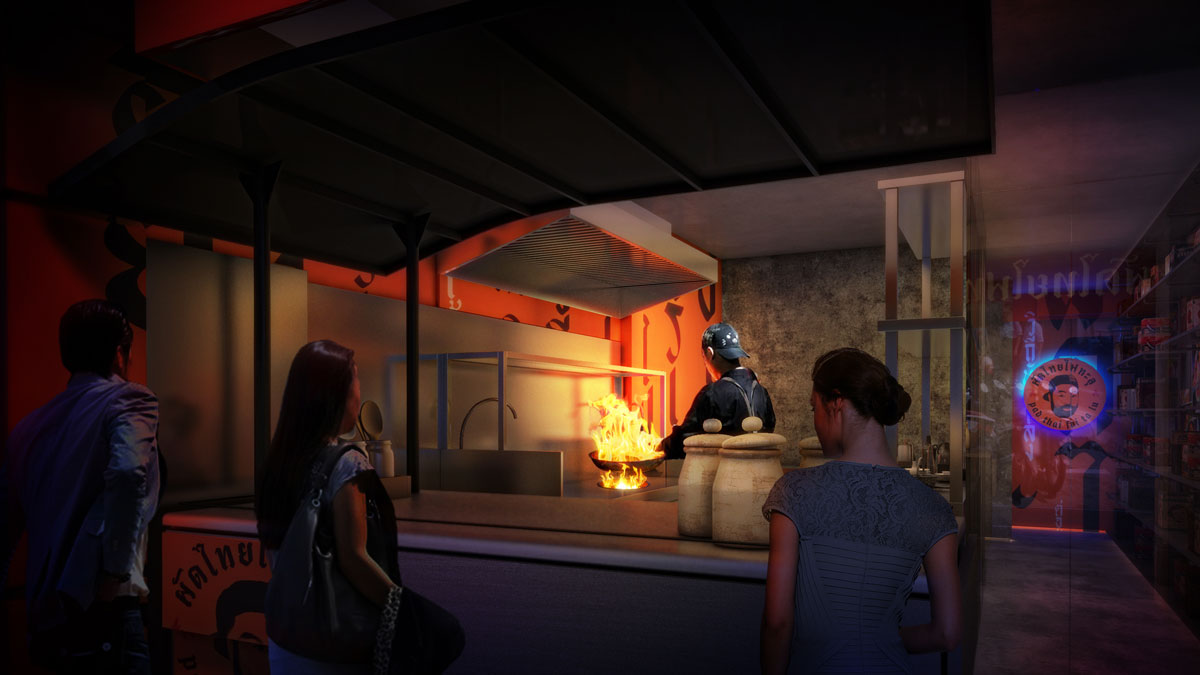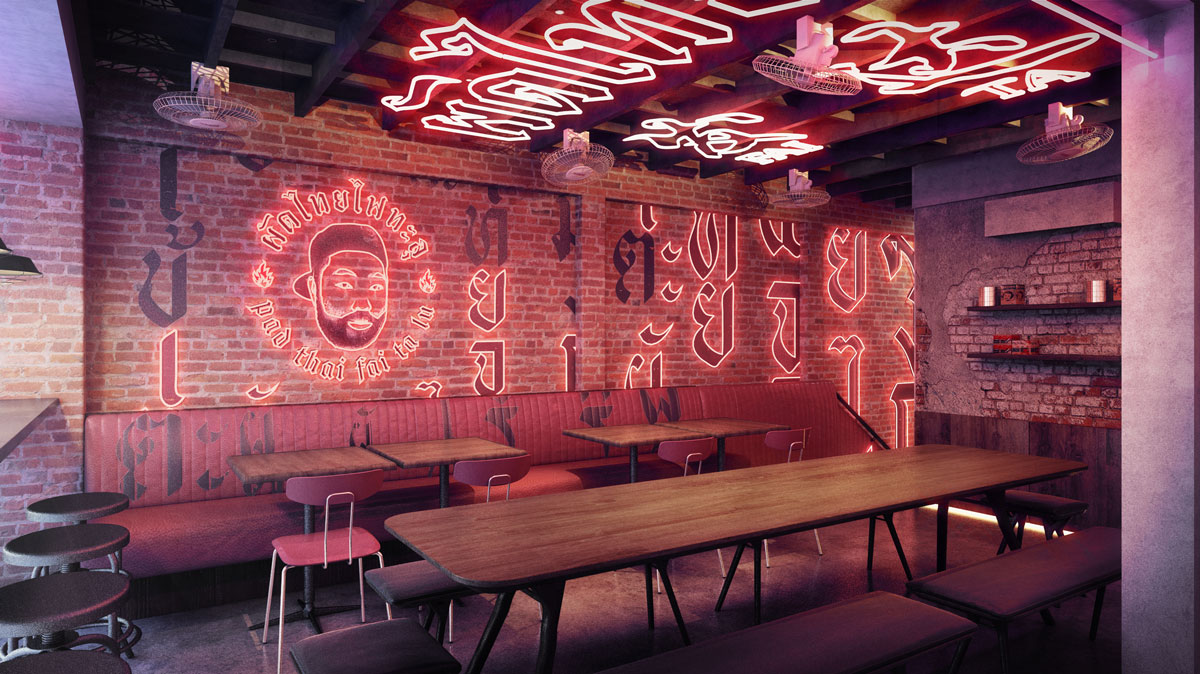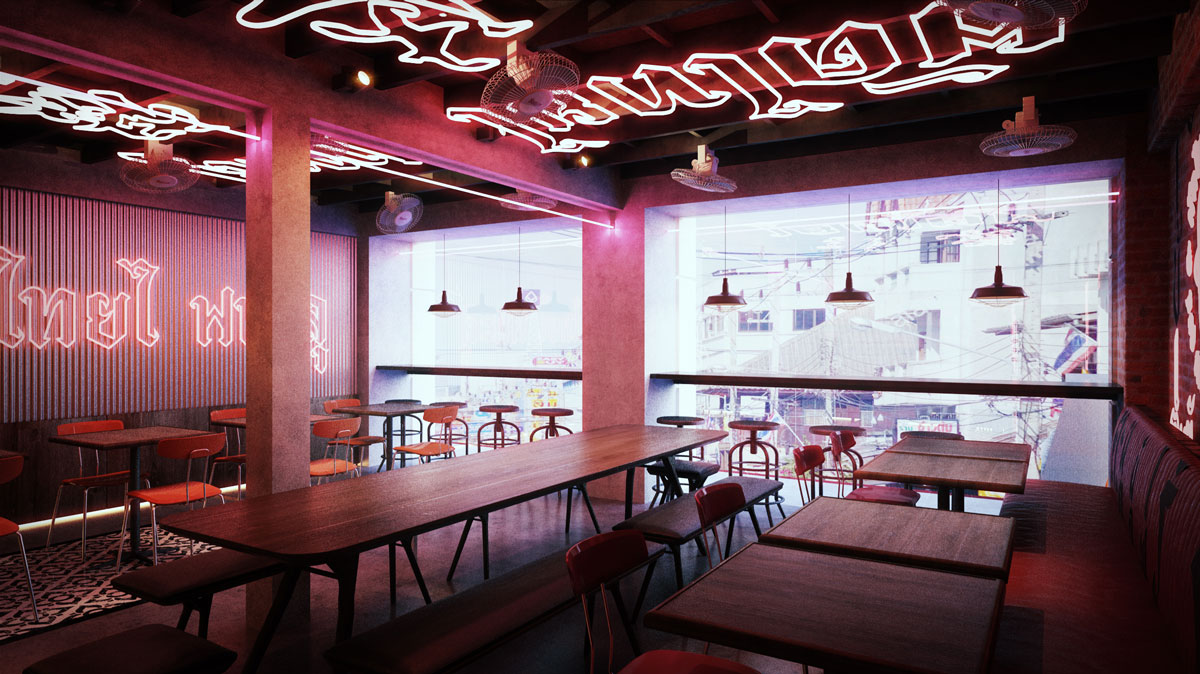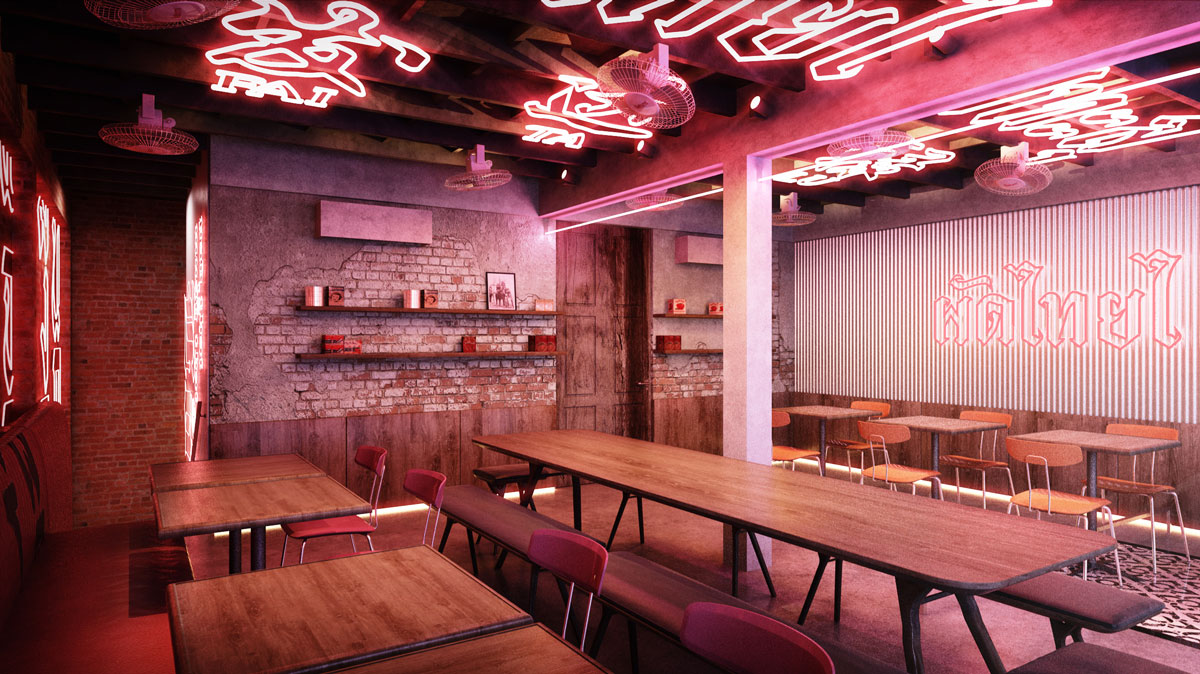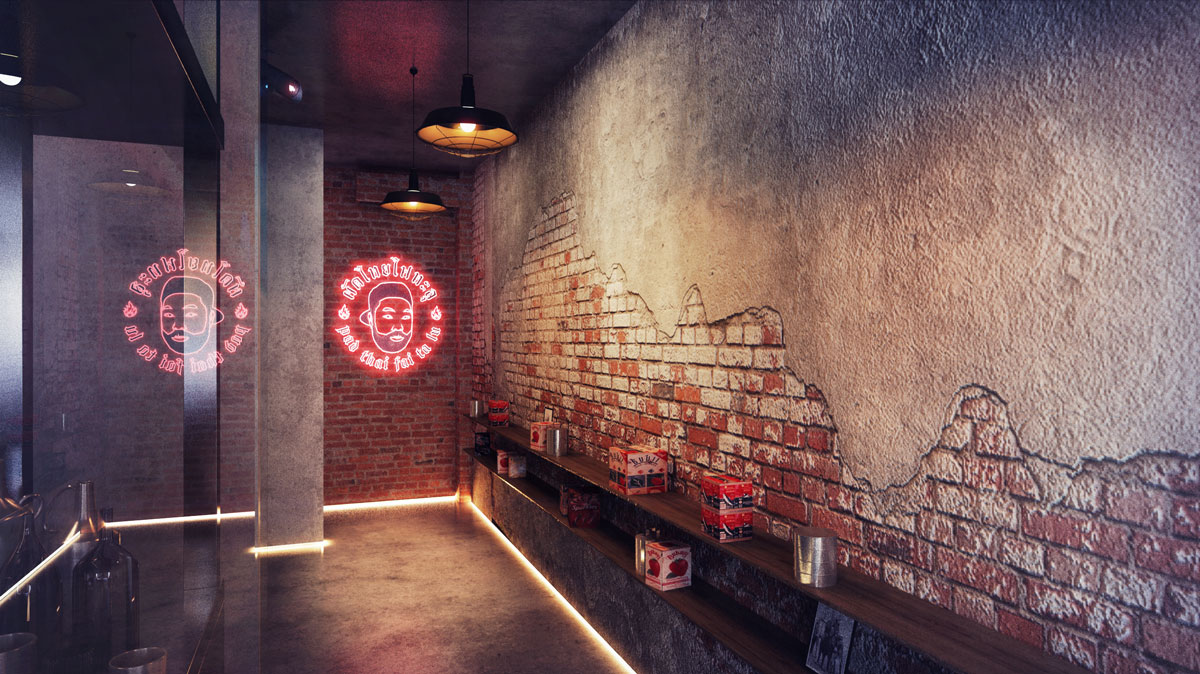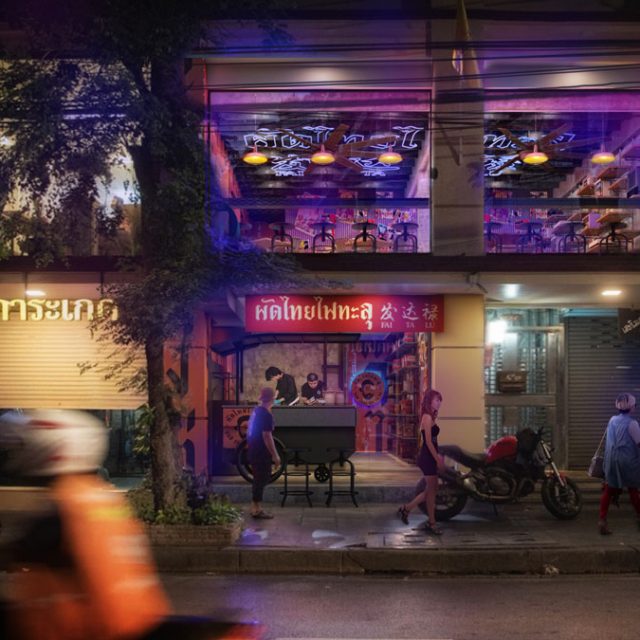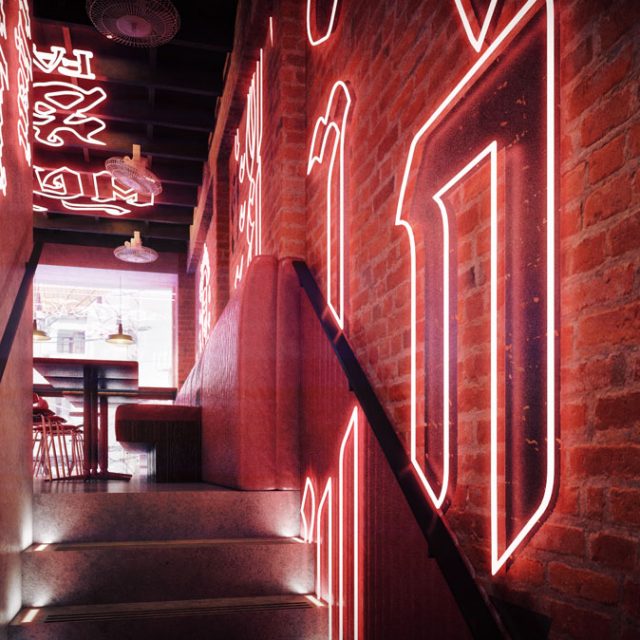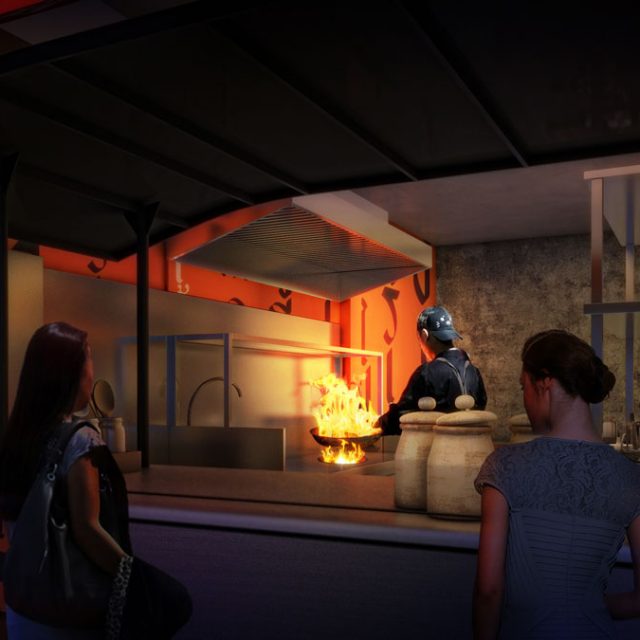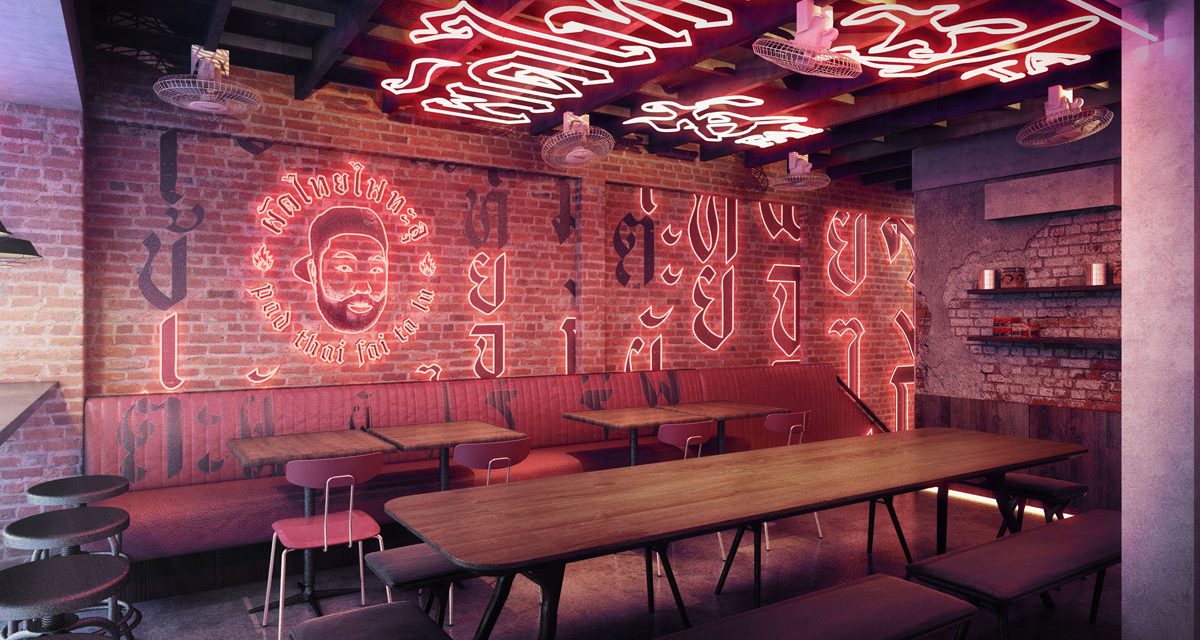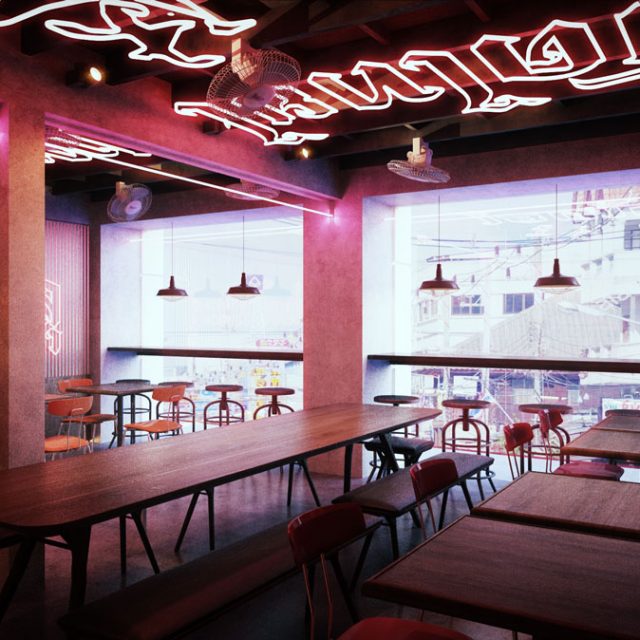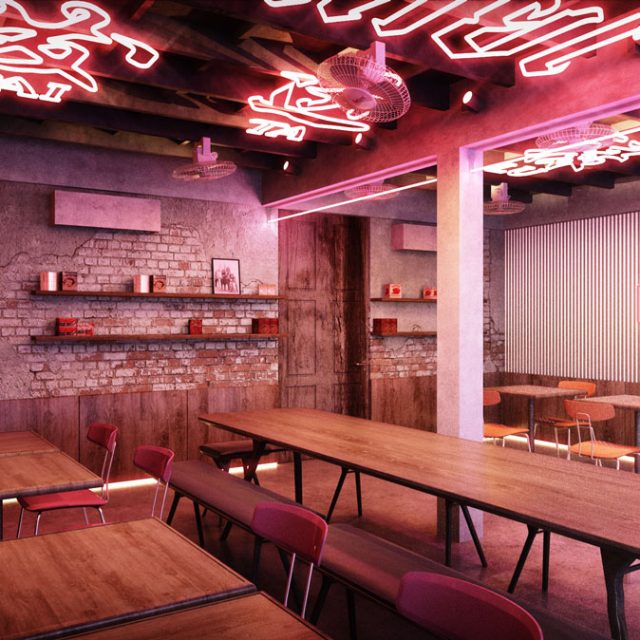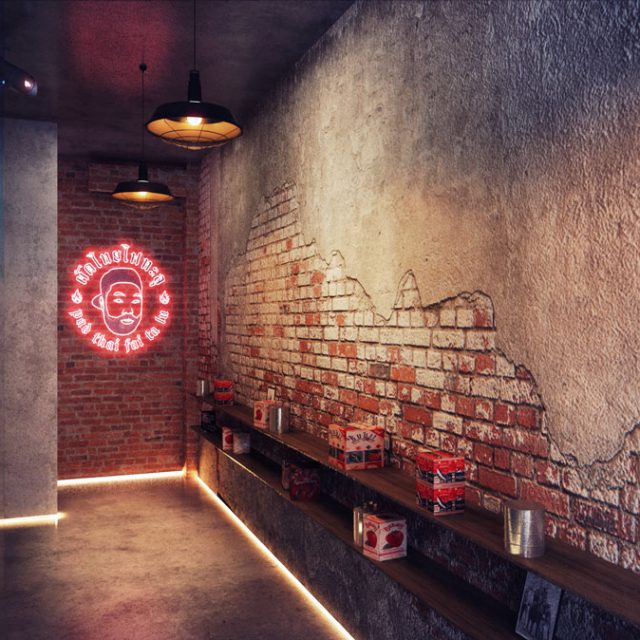The design of the entire restaurant is rooted in Thai street tradition with modern flourishes. Pad Thai is the essence of Thai street food. This connection to the streets is visible throughout the restaurant. To bring the street inside, pavers resembling an old road will be used on the ground floor, entering the interior slightly past the door, bringing the outside in. Upon reaching the top of the stair, one’s eye is first drawn to the massive neon sign on the ceiling, spelling out Pad Thai Fai Ta Lu, in Thai, Chinese, and Latin script writing. The neon is colored in a palette which echoes the lights of Bangkok’s streets and tuktuks. The next remarkable visual is seen when turning toward the orange supergraphic.
The focal point of the graphic is Pad Thai fai ta lu’s logo, with Andy Yang’s head in the middle. The dining area has a polished concrete floor. The seating consists of large wooden communal dining tables with a slightly rustic and bold natural aesthetic, a bar stool seating area next to the window facing the street, and bistro dining tables. To exit, guests take the same supergraphic stairs to the ground floor. Again they pass by the shelves filled with food and Pad Thai related merchandise, as well as clothing items bearing the brand’s identity. Taking a glance at the food cart and graphic on the kitchen wall, the guest is quickly back in the bustling street. The feeling of the bold food and atmosphere lingers, and he discusses the experience with his friends.
- Category
- Hotels & Restaurants, Commercial, Interior Design
- Location
- Bangkok, Thailand
- Year
- 2018
- Client
- Chef Andy Yang
- Role
- Lead Consultant
- A sqm
- 108
- Project
- Restaurant
- Status
- Concept Design

